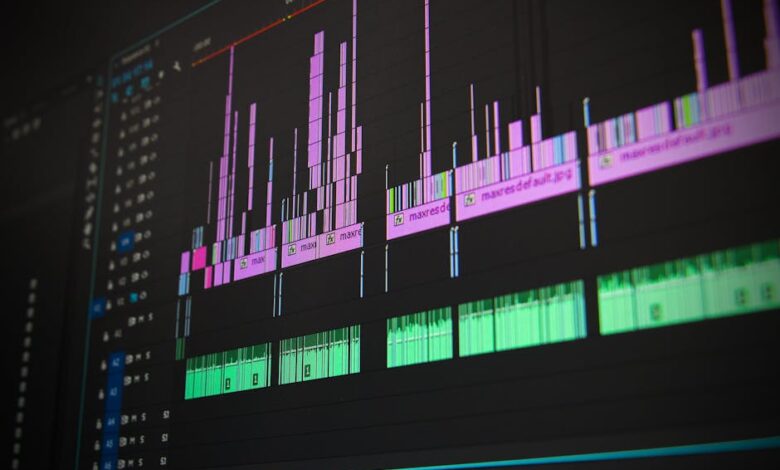Best Free Software To Make Beats

So, you want to make beats, huh? That’s awesome! The good news is you don’t need to break the bank to get started. There’s tons of free software out there that can help you create some serious bangers. As someone who’s been messing around with music software for years, I’m here to guide you through some of the best free options available.

What to Look for in Free Beat-Making Software
Before we dive into the specifics, let’s talk about what makes a good piece of free beat-making software. You want something that’s easy to learn, has a decent library of sounds, and offers enough features to let you get creative. Here are a few key things to consider:
- Ease of Use: Is the software intuitive? Can you figure out the basics without spending hours watching tutorials?
- Sound Library: Does it come with a decent selection of instruments, drums, and effects?
- Features: Does it offer features like sequencing, sampling, and mixing?
- Compatibility: Does it work with your computer’s operating system (Windows or Mac)?
- Community Support: Is there an active online community where you can ask questions and get help?
Keep these points in mind as we explore some of the best free beat-making software options.
The Top Free Beat-Making Software
Alright, let’s get to the good stuff! Here are some of my favorite free software programs for making beats:
1. Cakewalk by BandLab
Cakewalk by BandLab is a full-fledged Digital Audio Workstation (DAW) that’s completely free. Yes, you read that right! This isn’t some watered-down version of a paid program; it’s the real deal. It used to be a paid software called SONAR, but now BandLab offers it for free.
Why it’s great: Cakewalk is packed with features, including unlimited audio and MIDI tracks, a wide range of virtual instruments and effects, and a powerful mixing console. It’s perfect for both beginners and experienced producers.
Things to keep in mind: It can be a bit overwhelming for beginners due to its complexity. Also, it’s only available for Windows.
2. LMMS (Linux Multimedia Studio)
LMMS is a free, open-source DAW that’s available for Windows, Mac, and Linux. It’s a great alternative to FL Studio, with a similar interface and workflow.
Why it’s great: LMMS has a user-friendly interface, a built-in sound library, and a variety of virtual instruments and effects. It’s also very stable and reliable.
Things to keep in mind: The sound library isn’t as extensive as some other DAWs, but you can always add your own samples.
3. GarageBand
If you’re a Mac user, you’re in luck! GarageBand comes pre-installed on most Macs, and it’s a surprisingly powerful piece of software. Don’t let the simple interface fool you – GarageBand is capable of producing professional-quality music.
Why it’s great: GarageBand is incredibly easy to use, with a clean interface and a vast library of loops and instruments. It’s perfect for beginners who want to get started quickly.
Things to keep in mind: It’s only available for Mac and iOS devices. While powerful, it might not have all the advanced features of some other DAWs.
4. Tracktion Waveform Free
Tracktion Waveform Free is another excellent free DAW that offers a lot of features for the price (or lack thereof!). It’s designed to be intuitive and easy to use, making it a good choice for beginners.
Why it’s great: Waveform Free has a streamlined interface, a built-in sampler, and a range of effects. It also supports VST plugins, so you can expand its capabilities with third-party instruments and effects.
Things to keep in mind: While it’s free, Tracktion does offer a paid version with more features. The free version is still very capable, but you might feel the urge to upgrade eventually.
5. Serato Studio Lite
Serato Studio Lite offers a streamlined introduction to beat making, perfect for those familiar with DJing or looking for a quick and intuitive workflow. It’s a simplified version of the full Serato Studio software.
Why it’s great: Serato Studio Lite features a very user-friendly interface designed for rapid beat creation. The focus is on drag-and-drop functionality and quick sequencing, making it easy to experiment and create ideas quickly. It’s also great for sampling and chopping.
Things to keep in mind: The Lite version has limitations compared to the full version, such as a limited number of decks and effects. However, it’s a great starting point for learning the basics.
Tips for Getting Started with Free Beat-Making Software
Okay, so you’ve chosen your software. Now what? Here are a few tips to help you get started:
- Watch Tutorials: YouTube is your friend! There are tons of free tutorials available for all of these software programs.
- Experiment: Don’t be afraid to try new things. The best way to learn is by doing.
- Start Simple: Don’t try to create a masterpiece right away. Start with a simple drum pattern or melody and build from there.
- Use Headphones: Good headphones will help you hear the nuances of your beats and make better mixing decisions.
- Practice Regularly: The more you practice, the better you’ll get.
Safety First! Protect Your Ears
Making beats is fun, but it’s important to protect your hearing. Always use headphones or speakers at a reasonable volume. Prolonged exposure to loud noise can cause permanent hearing damage. Take breaks often to give your ears a rest.
Benefits of Using Free Beat-Making Software
Using free beat-making software has several benefits:
- It’s Free!: This is the most obvious benefit. You can start making beats without spending any money.
- It’s a Great Way to Learn: Free software allows you to experiment and learn the basics of music production without any financial risk.
- It Can Be Just as Powerful as Paid Software: Some free DAWs, like Cakewalk by BandLab, are just as capable as their paid counterparts.
- It Can Inspire Creativity: The limitations of free software can sometimes force you to be more creative.
Frequently Asked Questions
What’s the best free beat-making software for beginners?
GarageBand (for Mac users) and LMMS are both excellent choices for beginners due to their user-friendly interfaces and comprehensive features.
Can I make professional-quality music with free software?
Absolutely! Many professional musicians and producers use free software for at least some parts of their workflow. The key is to learn the software well and use your creativity.
Where can I find free samples and loops?
There are many websites that offer free samples and loops, such as Splice (which has a free trial), Looperman, and Freesound. Just be sure to check the license agreement before using any samples in your music.
Do I need a powerful computer to run beat-making software?
Not necessarily. Most of the free software programs mentioned above can run on relatively modest computers. However, if you plan on using a lot of virtual instruments or effects, you’ll need a more powerful computer.
What are VST plugins?
VST (Virtual Studio Technology) plugins are software instruments and effects that can be used in DAWs. They allow you to expand the capabilities of your software with additional sounds and processing tools. Many free VST plugins are available online.
Making beats is an awesome way to express yourself creatively, and with so many fantastic free software options available, there’s no reason not to get started. Experiment with the different programs, find the one that clicks with you, and start creating! Don’t be afraid to make mistakes – that’s how you learn. And most importantly, have fun!



